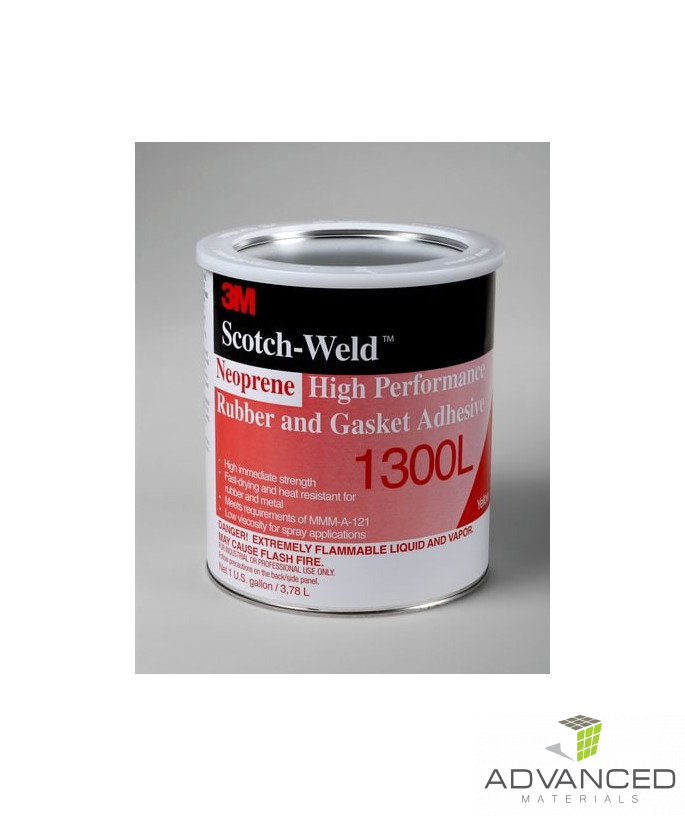




Adheres neoprene, SBR, butyl, and other types of rubbers to other various substrates
Excellent moisture and heat resistance and will perform up to up to 300°F/148°C
Can be used as a contact or wet-bond adhesive
3M™ Neoprene High Performance Rubber and Gasket Adhesive 1300L is a versatile, solvent based adhesive. It offers high immediate strength and good heat resistance, and is commonly used for bonding most rubber and gasket materials. It is also suitable for large area rubber sheeting applications, bumpers and more.
A Versatile Rubber and Gasket Adhesive
3M™ Neoprene High Performance Rubber and Gasket Adhesive 1300L is one of our most versatile solvent-based adhesives for rubber and gaskets. This adhesive bonds neoprene, reclaimed, SBR and butyl rubbers to metal, wood and most plastics. It provides excellent heat and water resistance, performing in temperatures up to 300°F/148°C. 3M™ Neoprene High Performance Rubber and Gasket Adhesive 1300L dries quickly while allowing time for positioning and adjustments without slowing down work processes.
ecommended Applications
An Everyday MRO Adhesive with Industrial Capabilities
Due to the versatility behind the design of 3M™ Neoprene High Performance Rubber and Gasket Adhesive 1300L, it has become one of the most popular tapes for general MRO applications. In order to meet the demands of large scale operations, we have made 3M™ Neoprene High Performance Rubber and Gasket Adhesive 1300L available in tubes, cans and pails. Additionally, this adhesive is sprayable with industrial grade spray equipment.
Applying Your Adhesive
Whether it is being sprayed, brushed or rolled on, the application of your 3M™ adhesive is a straightforward process. Start by carefully applying your adhesive to your surface until it results a uniform coat. Using an overlapping pattern, the application of one coat should prove sufficient for most surfaces. Effective adhesive coverage is accomplished when 80% or more of the surface is covered. Some substrates, including porous materials, may require an additional coat. In order to apply additional adhesive, simply wait until the existing adhesive becomes dry to the touch, and then proceed with the application of the additional coat.

Adheres neoprene, SBR, butyl, and other types of rubbers to other various substrates
Excellent moisture and heat resistance and will perform up to up to 300°F/148°C
Can be used as a contact or wet-bond adhesive
